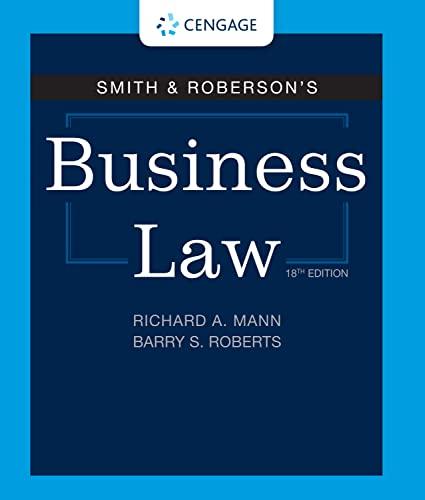Question
Discussion reply to Good Afternoon Professor and Class! Three issues that we all probably are well-versed in for law and ethics in homeland security include
Discussion reply to
Good Afternoon Professor and Class!
Three issues that we all probably are well-versed in for law and ethics in homeland security include intelligence gathering on citizens in the United States, how we treat illegal immigrants, and how we handle terrorism internationally. All three tie together in a way.
Intelligence gathering on citizens is something the United States knows all too well from past experiences. A huge legal and ethical issue with this reverts back to how much intelligence gathering was conducted post-9/11 on citizens without their knowing. While the balance of protection and freedoms comes at a cost, it was not until Edward Snowden publicly shared what was really going on that citizens realized exactly what that cost was. Once it was published, many people deemed this unethical and unlawful consolidating all the information on all citizens all the time. At the time after 9/11, it was when the country rushed to solidify protection at all costs because we were taken off guard with attacks to our own critical infrastructure, resulting in the loss of thousands of lives. To jump to that extreme was not necessary, but at the time that was what leaders thought would be best to protect the country from terrorism. On the flip side, I wonder if Edward Snowden never publicized what was going on, would it still be going on today? This is a huge law and ethics problem that needs to consistently be monitored to keep this from happening again. This is a hit to the security of our nation because it allows citizens to doubt what lawmakers and leaders are actually doing when citizens do not have a need-to-know.
Secondly, illegal immigration treatment is a different law and ethics problem that is heavily debated across the country. Some say it falls along the lines of political parties, but with more independent thinkers it is a blurry line for who agrees with what on the law and ethics for illegal immigrants across the nation. No matter what, illegal immigrants still need to be treated with decency and have their rights as many American citizens do, but the problem is to what extent do they get rights that American citizens do? Right to due process in a court hearing, sure. Do they have the right to freedoms like Americans do in their private lives? Will they need to be monitored for potential terrorist activity or connections? Do all illegal immigrants when caught face deportation, or just when they commit crimes? I did research on this for the final paper, and it doesn't seem to be a standardized process for what will and won't get an illegal immigrant deported (Wiltz, 2016). Finally, is it worth deporting illegal immigrants that do not have any negative record in the United States? The country was technically built on illegal immigration, and we rely heavily on different aspects and backgrounds to make national security more robust because it provides a variety of opinions and experiences. This is a debatable topic because there are so many opinions on the matter. This can affect the security of our nation because the biggest threat to the nation is inner turmoil, and with this being such a debatable topic it can lead to problems, causing the country to internally combust without adversaries having to do anything. Ultimately, the most important thing in the entire argument is that illegal immigrants are treated with decency and respect.
Lastly, international terrorism is a law and ethics debate that personally, I think is easier to answer than the last two. Law and ethics dictate how much monitoring can be allotted for international citizens, Americans overseas, and known terrorist organizations. Is it lawful to use intelligence capabilities to monitor them all? Currently we have a process in place under the Foreign Intelligence Surveillance Program that was just re-authorized by President Biden that allows monitoring overseas for terrorists and international intelligence collection for homeland security and defense purposes (NPR, 2024). Some may debate that it is unethical no matter what to monitor private interactions without necessary need (considering a terrorist organization not attacking yet being an unnecessary target of monitoring) but personally I think the country should be proactive more than reactive for these situations. The last thing we need is an attack on our troops overseas or in the country, that was not predicted but could have been mitigated, because ethics deemed it wrong to monitor adversaries.
What do you guys think?
Step by Step Solution
There are 3 Steps involved in it
Step: 1

Get Instant Access to Expert-Tailored Solutions
See step-by-step solutions with expert insights and AI powered tools for academic success
Step: 2

Step: 3

Ace Your Homework with AI
Get the answers you need in no time with our AI-driven, step-by-step assistance
Get Started


